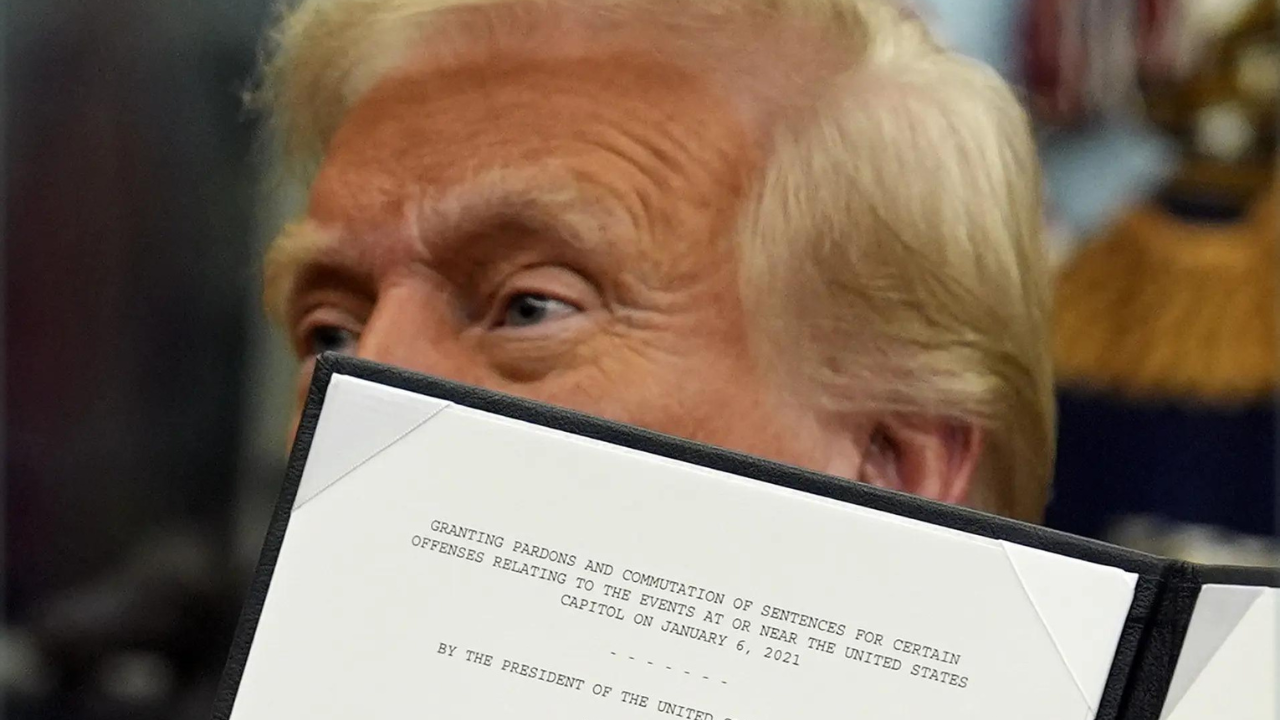Trump's Controversial January 6th Pardons Spark Nationwide Debate
President Trump's decision to pardon hundreds of individuals involved in the January 6th Capitol attack has ignited a firestorm of controversy across the nation. This shocking move, announced just hours after his return to power, has left many reeling, prompting outrage from Democrats and a mixed reaction even within the Republican party. This isn't just another political showdown; this is a deeply divisive act that challenges the very fabric of American justice. Will this bold decision reshape the nation's perception of accountability? Dive in to uncover the full story and its seismic political implications.
The Pardons: A Deep Dive into the Controversy
The sheer scale of the pardons – encompassing over 1,500 individuals implicated in the January 6th insurrection, including leaders from extremist groups like the Proud Boys and Oath Keepers – is staggering. These weren't minor offenses; many faced charges ranging from assault on law enforcement to conspiracy. This mass pardon sparked immediate reactions, painting a stark picture of the partisan divide.
Republican Divisions and Condemnation
While some Republican senators remained loyal to Trump and supported his decision to pardon those involved in the attacks, it did not come without severe division amongst party leaders. Senators like Tillis and Cassidy voiced concerns regarding the pardons' impact, hinting at potential safety issues on Capitol Hill. Such reactions highlighted growing dissent within the party ranks and also underscored the potential political consequences and public relations crisis that this controversial pardoning would create for their party.
Democratic Fury and Calls for Accountability
Unsurprisingly, the Democratic party vehemently denounced Trump's decision. They saw the pardons not just as a political move but a blatant disregard for the rule of law and an affront to those law enforcement officials who defended the Capitol on January 6. The unified anger coming from democrats will surely add another fuel to the already heated partisan politics seen recently.
The Justice Department's Response: Will it Matter?
With Trump’s action, questions are mounting around whether the Justice Department has any ability to oppose or review the legality of presidential pardons. Will the DOJ, long known as a beacon of impartiality, remain impartial or would they find this action unacceptable?
Long-Term Implications and the Future of American Justice
The long-term implications of these pardons are profound. The move raises crucial questions about the future of justice and whether such actions will set a dangerous precedent, setting the scene for other future insurrection movements.
Will this set a dangerous precedent?
It would be prudent to consider the ramifications of this controversial act: would other potential insurrectionist or politically motivated offenders risk involvement with no fear of retribution in the future, as seen in many authoritarian regimes across the world? Will those who were injured and affected seek recourse through means outside of formal avenues of justice? There are a lot of factors that make it uncertain as to whether this pardoning would set a precedent and it also depends on the long-term outcomes of this political move.
Eroding public trust?
Trump's decision undoubtedly eroded public trust, causing considerable concern within the government regarding the fairness of the judicial system. The implications will likely resonate deeply, impacting elections, political discourse, and the confidence of ordinary citizens in a democratic government. Would the American population be swayed to lose trust in such a significant move, affecting election results in the long-term?
Analyzing the President's Rationale
President Trump defended his decision by asserting that these individuals are patriots who love their country. His statement that the January 6th rioters only faced punishment due to serving years in jail and that he pardoned them due to this shows how he viewed the whole event.
A Political Calculation or Genuine Belief?
To truly understand President Trump's motivation, we must consider his ongoing political calculations, his perceived position as an underdog who was defending American patriots. This isn't a simple right versus wrong narrative; instead, it is a tangle of political strategies, personal beliefs, and an undercurrent of populism, playing a crucial role in American politics today. Would a more bipartisan approach have a more calming and resolving effect instead?
Public Opinion and Political Fallout
The public’s response was varied, but the divisive nature of the pardon’s created another stark divide between those who supported and oppose Trump’s pardoning. Given how polarized the political climate is, this decision will have strong lasting political fallout, leaving impacts felt across many facets of American politics.
Take Away Points
- President Trump’s mass pardon of January 6th participants ignited a major political firestorm.
- The decision has triggered heated debates regarding justice, accountability, and political strategy.
- Concerns are growing about the long-term impact this precedent would set on future political events.
- The political fallout from this act could be immense.




